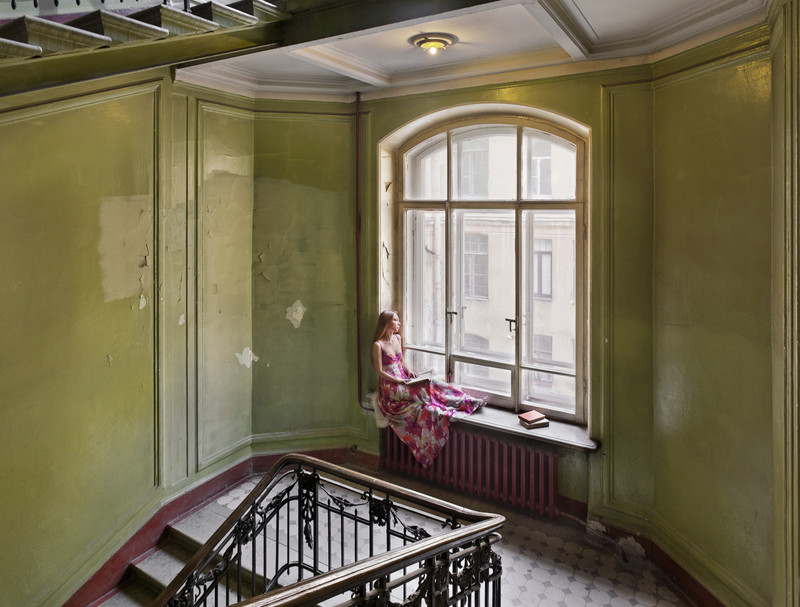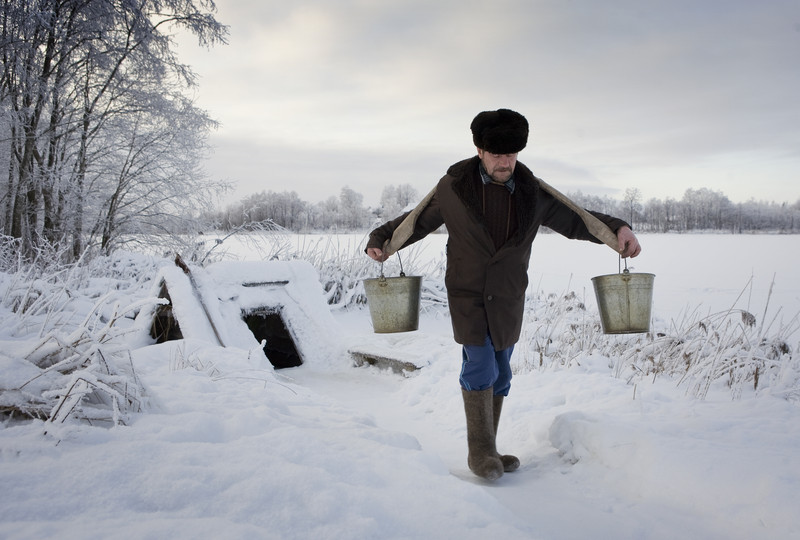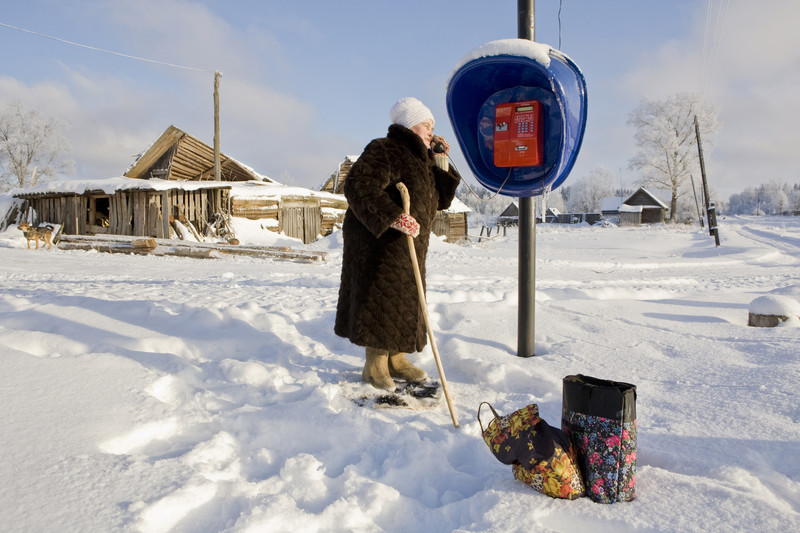Frank Herfort’s photographs are personal invitations to explore self-contained worlds that startle with rich detail and vibrant color. Based in both Berlin and Moscow, Frank has made exploring the contrasts and contradictions of life in contemporary Russia a central focus of his artistic work. Whether situated in the austere, crumbling remains of Soviet society or the opulent homes of modern Russian oligarchs, the spellbinding results demonstrate a singular talent for documentary storytelling. These immersive environments intrigue with people and riveting places seemingly caught out of both time and context.
Wondrous worlds waiting for something to happen. For his project “Russian Fairytales”, the Leipzig-born photographer captured scenes of inner states of the soul in a surreal (artistic) space. The whole world is frozen in a condition of waiting. The people on these photos seem to be totally absorbed in a deep, paralyzing, enchanted slumber. And we have the uncanny sneaking feeling that this time there is no prince on his way to kiss them awake again. “This moment of life here could go on for ever” remarks Frank Herfort. The images make a surreal, absurd impression; they raise more questions than they answer. “The storyline, these absurd constellations, develops out of the relationship between the people in the photos and the space around them,” comments the Leipzig photographer. The seminal idea for it came to him during a stay in Russia two years ago, at a time when he was beginning to develop an interest in the aesthetic aspect of public spaces. “In Western Europe everything is so neatly defined, so specific. A waiting room is a waiting room, an office is an office. In Russia, in contrast, rooms are open to interpretation, many-layered and not so prettified. And I also noticed that there seem to be many more people just sitting around in them. None of them seems at first sight to know what they are doing there. I tried to integrate people like that into my pictures.”For this, Herfort chose subtle settings with people whom he met at the scene and asked whether they would be willing to let him photograph them in the poses he wanted. Thus, in “Russian Fairytales” what we see are not classic portraits and individual emotional states. Herfort makes intuitive use of the often melancholy atmosphere of a location, influenced by building materials such as marble and dark woods, in order to give emotional states and themes such as isolation and stagnation visible expression. He finds the Russian soul mirrored (in a double sense) in these images of the Russian urban population, just as the artist-princes such as Repin or Surikov once did - and finds himself quoting the tradition of the painters almost by accident. The ”fairytale” in these pictures is nothing more than a distant dream of another time, far, far away.
click to view the complete set of images in the archive

















